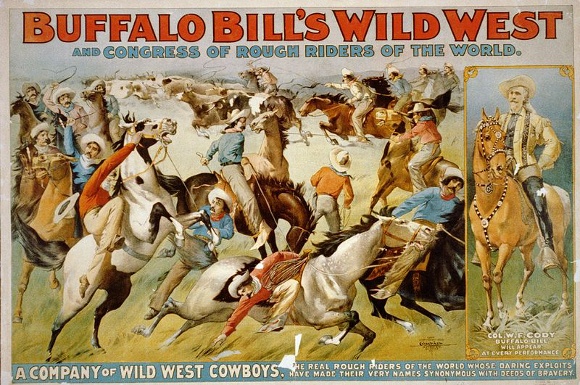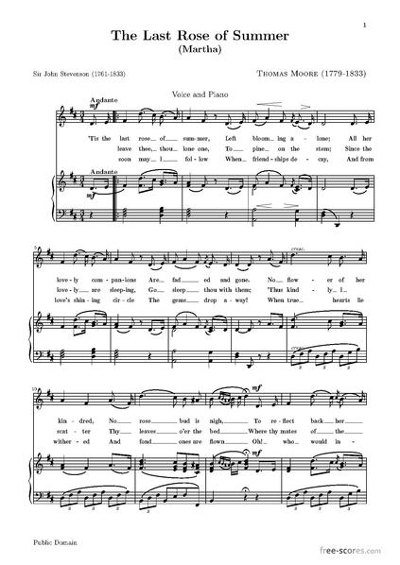Dubliners Contents
- Social / political context
- Religious / philosophical context
- Literary context
An Encounter
Synopsis of An Encounter
The story recalls a time in the narrator’s boyhood when he and his friends were obsessed with comics about the American Wild West and with playing games of cowboys and Indians. One day one of their teachers (a Jesuit priest) finds one of their comics and reproves them for reading such inferior material. Meanwhile, the narrator is growing tired of games and longs for real adventures in his own life.
The narrator and two of his friends, Mahony and Dillon, plan to play truant for a day so that they can play their games in wilder surroundings that are further from home. When the day comes, only Mahony turns up to meet the narrator, which spoils the games they have planned. They walk through unfamiliar parts of the city and eventually reach the countryside where they meet an old man who speaks to them strangely. The narrator is left alone with the man, who begins to seem more menacing. He is relieved when he sees Mahony running to rejoin him.
Commentary on An Encounter
 The Wild West This was the name given to the Western part of the United States as the country developed towards the Pacific coast during the nineteenth century. In the boys’ comics read by the narrator and his friends, it was the setting for stories about bandits, rustlers and tough gunmen, opposed by sheriffs struggling to impose law and order.
The Wild West This was the name given to the Western part of the United States as the country developed towards the Pacific coast during the nineteenth century. In the boys’ comics read by the narrator and his friends, it was the setting for stories about bandits, rustlers and tough gunmen, opposed by sheriffs struggling to impose law and order.
The Union Jack, Pluck and The Halfpenny Marvel Boys’ magazines filled with adventure stories. A halfpenny was one of the smallest units of pre-decimal currency, so this was a cheap magazine.
Indian battles At the time the story was written the indigenous tribes of North America were referred to as Indians. (These days they are more usually called Native Americans.) Fights between ‘cowboys’ (European settlers) and ‘Indians’ (the native population) were a standard subject of adventure stories.
went to eight o’clock Mass every morning Joyce’s first readers would have understood regular church attendance at such an early hour as a mark of special piety.
Ya! yaka, yaka, yaka! Supposedly a cry used by some Native American tribes during religious ceremonies.
vocation for the priesthood A calling (from God) to become a priest.
the four pages of Roman History At the time the story is set the study of the classical languages (Latin and Greek) was central to the higher school curriculum for boys. Here, Father Butler is testing the boys on their translation of some set pages from an anthology of extracts from Roman historians.
Hardly had the day … The standard translation of frequently repeated phrases in Julius Caesar’s account of his campaigns in Gaul (now France).
The Apache Chief The Apaches were a nomadic tribe of Native Americans who were especially defiant to the attempts of Europeans to colonise their lands.
this college Dublin readers would have recognised this as Belvedere College, a day school for boys run by the Jesuits, where Joyce was a pupil. The school had a high reputation for the quality of its teaching.
National School A primary school, part of an educational system established the country by English legislation between 1831 and 1834, offering a basic education. Irish nationalists objected to the schools because they insisted on instruction in English, thus contributing to the decline of the Irish language. The Catholic Church also disliked them because Protestant and Catholic children were taught together with a mixed form of religious instruction.
miching Schoolboy slang for playing truant.
sixpence A small silver coin worth six pennies, half of one shilling. A middle-class boy might at this time have received sixpence pocket money each week.
pipeclay A white clay often used for tobacco pipes, but here used to clean a pair of white canvas shoes.
have some gas with A slang term for have some fun with.
Bunsen burner A gas burner producing a variety of flames, used in school chemistry lessons. There is also a joke (pun) here on Father Butler’s name and perhaps also a comment on his fiery temperament.
a bob Slang term for a shilling, a silver coin worth twelve pence.
a tanner Slang term for a sixpence (see earlier note).
ragged boys … ragged girls … the ragged troop ‘Ragged’ was a term often used to describe charitable schools for poor children. In Dublin there were several such schools, run by both Protestant and Catholic churches.
Swaddlers A Dublin slang term for Protestants, originally applied to Methodists. Its origin is not certain, but one theory is that it refers to the Authorised Version of the Bible (1611) where the baby Jesus is said to be wrapped in ‘swaddling clothes’ (Luke 2:7).
right skit Slang term for great fun.
green eyes Seafaring legend suggests that sailors have green eyes. The narrator also probably knows that Ulysses in the Odyssey by Homer was traditionally thought of as having green eyes.
jerry hat A stiff hat made of felt.
 Thomas Moore (1779-1852) was an Irish poet who was enormously popular in the nineteenth century, especially for his Irish Melodies (1807-34) which set words to old Irish tunes and were frequently performed, both publicly and privately.
Thomas Moore (1779-1852) was an Irish poet who was enormously popular in the nineteenth century, especially for his Irish Melodies (1807-34) which set words to old Irish tunes and were frequently performed, both publicly and privately.
Sir Walter Scott A Scottish novelist and poet (1771-1832) whose novels presented a romanticised view of the past.
Lord Lytton Edward Bulwer-Lytton (1803-73) was a novelist as well as a politician. He wrote popular historical novels, although his more sensational and racy books were disapproved ofby more prudish readers.
totties A slang term, used to describe girls in general, girlfriends and the more expensive prostitutes.
josser Another slang term, sometimes simply meaning a chap or fellow, but also used to describe a simpleton.
Investigating An Encounter...
- How is escape symbolised in An Encounter? (see Imagery and symbolism for ideas)
- What narrative devices does Joyce use to make us aware of the narrator’s age?